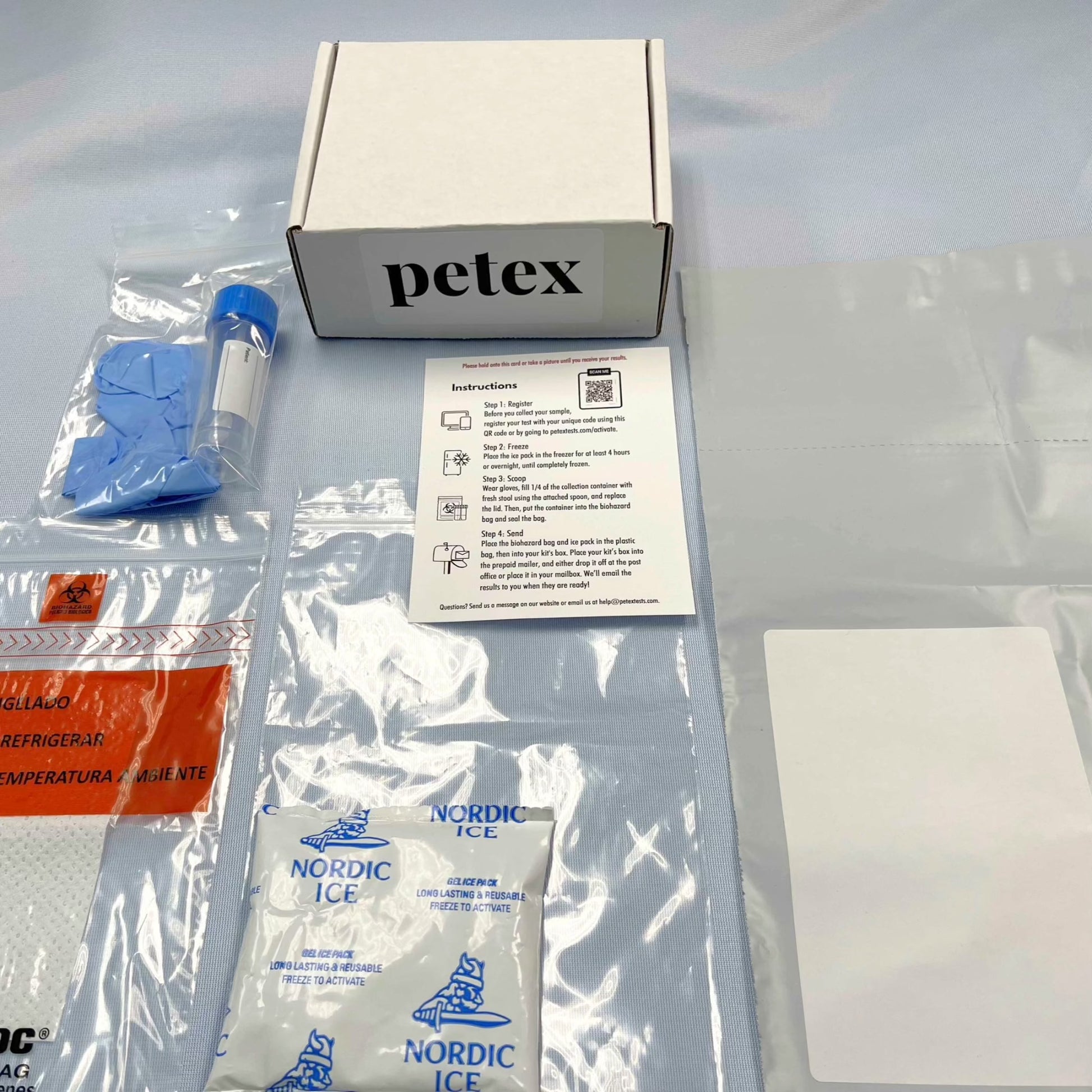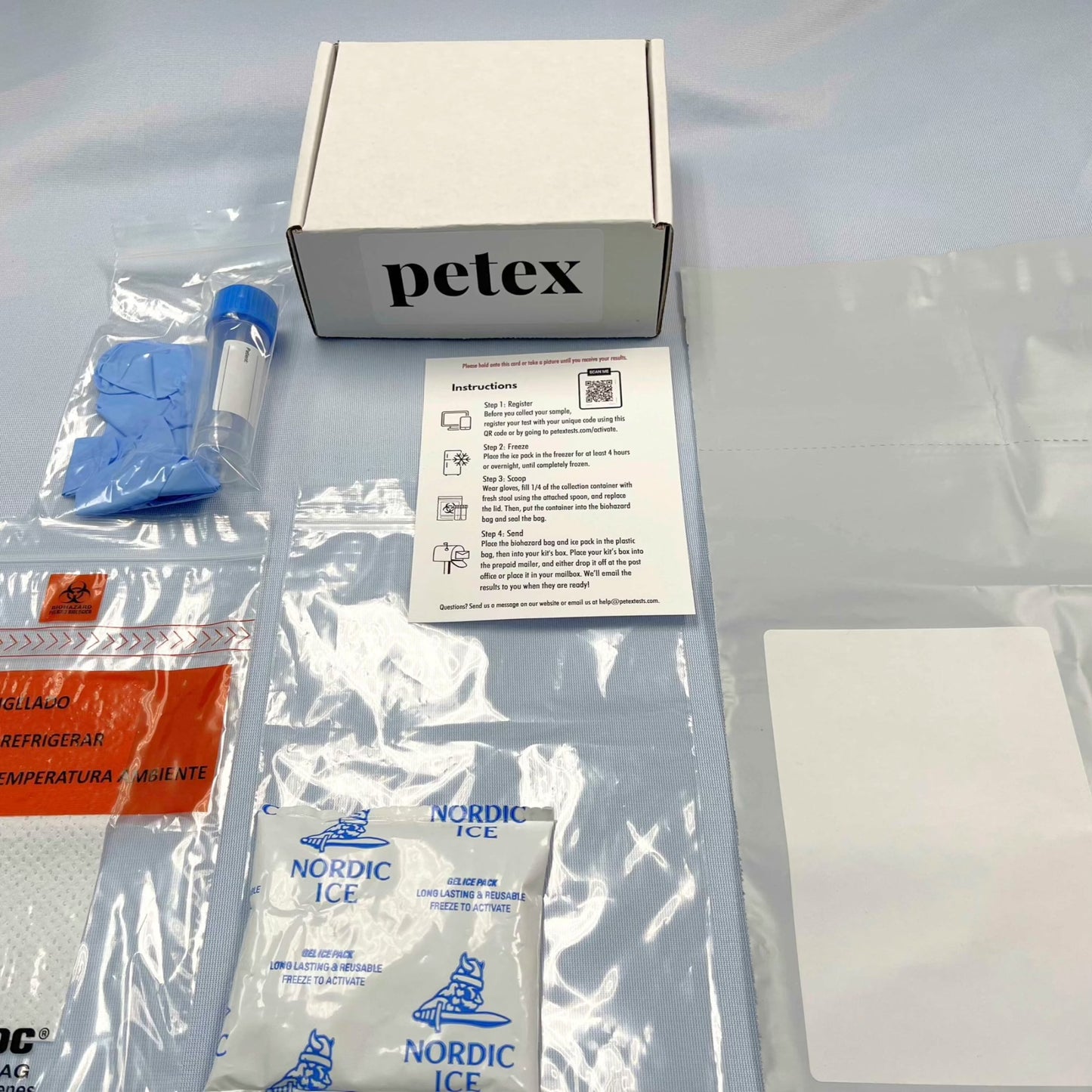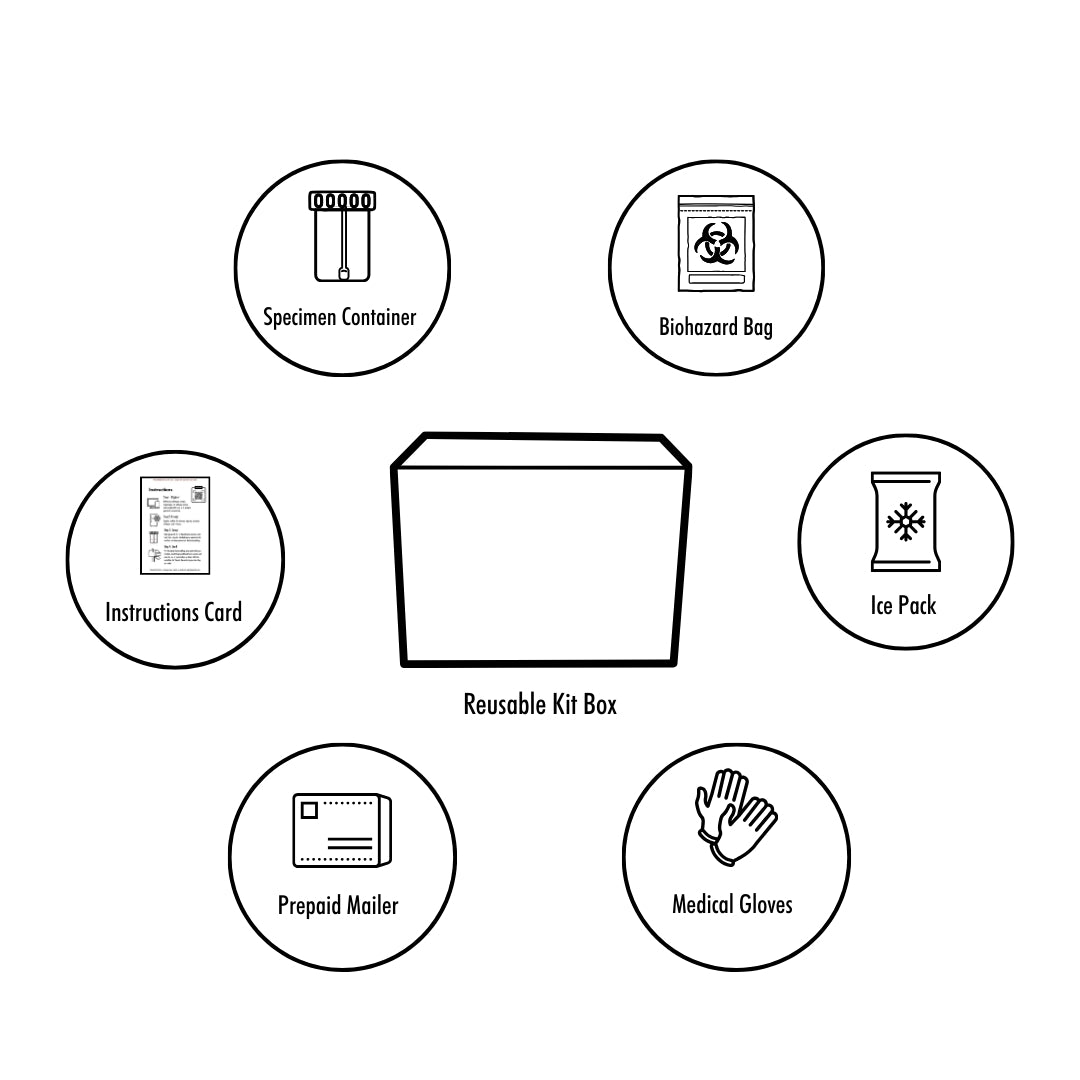
Is Your Dog’s Upset Stomach a Sign of Something More? Causes, Symptoms, and Best Next Steps
Share
Is Your Dog’s Upset Stomach a Sign of Something More? Causes, Symptoms, and Best Next Steps
Upset stomachs are a frequent issue for dogs, causing concern for many pet owners. Most dogs will experience a bout of digestive upset at some point in their lives, whether it’s from eating something they shouldn’t or from a more serious underlying condition. While mild cases often resolve on their own, a dog’s upset stomach could indicate something more significant, such as internal parasites, inflammatory bowel disease, or even kidney and liver disease. Understanding the causes, symptoms, and treatment options can help dog owners take better care of their pets.
What Causes a Dog Upset Stomach?
Dogs can experience digestive issues for various reasons, ranging from dietary indiscretions to parasitic infections. Understanding the dog's digestive system is crucial when diagnosing and managing these issues. Let’s explore some of the most common causes.
1. Dietary Indiscretions
When a dog eats something they shouldn’t—whether it's garbage, spoiled food, or even toxic substances like certain plants—they may experience an upset stomach. A dog’s digestive system is sensitive to sudden changes in diet or ingesting items that aren't safe for consumption.
2. Food Allergies or Intolerances
If your dog frequently has loose stools, gas, or dog diarrhea, food allergies or intolerances might be to blame. These conditions can cause inflammation in the intestinal tract, leading to discomfort, poor digestion, and sometimes even weight loss in adult dogs. Common allergens include grains, chicken, and beef.
3. Parasites in Dogs
Internal parasites, such as roundworms, hookworms, and whipworms, can infect dogs and cause a variety of gastrointestinal symptoms. Dog parasites can be picked up from contaminated environments, infected fleas, or other dogs. These intestinal parasites in dogs can lead to serious health complications if left untreated. Whipworm infections, for example, often lead to bloody diarrhea and inflammation in the large intestine. Similarly, hookworm infections in dogs can result in severe anemia due to blood loss caused by adult worms attaching to the intestinal wall.
4. Stress and Anxiety
Much like humans, dogs can experience digestive upset as a result of stress. Whether it’s a move to a new home, changes in family dynamics, or disruptions to their routine, stress can trigger stomach issues, including diarrhea, vomiting, and even abdominal pain.
5. Infections and Disease
Infected dogs may suffer from bacterial or viral infections that lead to digestive upset. Additionally, kidney and liver disease can manifest as gastrointestinal problems, making prompt treatment essential. Bacterial toxins in the intestines can cause inflammation and lead to symptoms like diarrhea and vomiting. Conditions such as inflammatory bowel disease (IBD) can also cause chronic digestive issues.
6. Inflammatory Bowel Disease (IBD)
Inflammatory Bowel Disease (IBD) is a chronic condition that affects a dog’s digestive system, leading to inflammation and damage in the intestinal tract. Dogs with IBD often experience a range of symptoms, including diarrhea, vomiting, abdominal pain, and weight loss. The exact cause of IBD remains unknown, but it is believed to result from a combination of genetic, environmental, and immune system factors.
Diagnosing IBD can be challenging because its symptoms are similar to those of other gastrointestinal conditions, such as infections or foreign body ingestion. Veterinarians typically use a combination of physical examinations, laboratory tests, and imaging studies to diagnose IBD. Treatment usually involves medications to reduce inflammation, dietary changes to manage symptoms, and lifestyle modifications to support overall health. If you suspect your dog has IBD, consult your veterinarian for a comprehensive evaluation and tailored treatment plan.
7. Foreign Objects
Dogs are naturally curious and sometimes ingest non-food items like toys, sticks, or household objects, which can lead to an upset stomach. When a dog swallows a foreign object, it can become lodged in the digestive tract, causing blockages, inflammation, and damage to the surrounding tissues. In severe cases, foreign objects can cause intestinal perforation, leading to life-threatening complications.
If you suspect your dog has ingested a foreign object, seek veterinary attention immediately. Symptoms may include vomiting, diarrhea, abdominal pain, and loss of appetite. Your veterinarian may perform imaging studies, such as X-rays or ultrasound, to locate the object and determine the best course of treatment. In some cases, surgery may be necessary to remove the object and repair any damage to the digestive tract.
Symptoms of Digestive Upset in Dogs
An upset stomach can manifest in several ways. Monitoring your dog’s symptoms is crucial in determining whether it’s a mild case or something more serious that requires medical attention. Accurately describing your dog's symptoms to a veterinarian can aid in diagnosing potential underlying health problems.
- Vomiting: This is often the first sign that a dog’s stomach is upset. Occasional vomiting may not be a cause for concern, but persistent vomiting or the presence of blood could indicate something more serious.
- Diarrhea: Loose stools or frequent bowel movements are common symptoms of digestive upset. Bloody diarrhea can signal infections, parasites, or inflammatory conditions like IBD.
- Loss of Appetite: Dogs with upset stomachs may refuse to eat. If your dog’s symptoms include lethargy or ongoing lack of appetite, you should consult a veterinarian immediately.
- Weight Loss: Chronic digestive issues can lead to weight loss in both young puppies and adult dogs. If left untreated, parasitic infections and conditions like IBD can prevent dogs from absorbing the nutrients they need.
- Bloating and Gas: Excessive gas or bloating can indicate that your dog is having difficulty digesting food, possibly due to a bacterial infection or food intolerance.
Diagnosing Upset Stomach in Dogs
Diagnosing an upset stomach in dogs requires a combination of physical examination, laboratory tests, and a thorough medical history. Understanding the underlying cause of your dog’s symptoms is crucial for effective treatment and recovery.
1. Physical Examination
A physical examination is the first step in diagnosing an upset stomach in dogs. During the examination, your veterinarian will:
- Palpate the abdomen to check for tenderness, pain, or masses.
- Listen to the abdomen with a stethoscope to detect abnormal sounds.
- Check the dog’s vital signs, including temperature, pulse, and respiratory rate.
- Examine the dog’s stool and vomit for signs of blood, mucus, or other abnormalities.
This thorough examination helps the veterinarian identify any immediate concerns and determine the next steps in the diagnostic process.
2. Laboratory Tests
Laboratory tests are often necessary to diagnose the cause of an upset stomach in dogs. These tests may include:- Complete Blood Count (CBC): To check for signs of infection or inflammation.
- Blood Chemistry Tests: To evaluate liver and kidney function.
- Urinalysis: To check for signs of urinary tract infection or kidney disease.
- Fecal Examination: To detect parasites, such as worms or giardia.
- Imaging Studies: X-rays or ultrasound to evaluate the digestive tract and surrounding tissues.
These tests provide valuable information about your dog’s health and help pinpoint the cause of their digestive issues, allowing for targeted and effective treatment.
When to Seek Professional Help
In many cases, a dog’s upset stomach depends on the severity of the symptoms. If your dog has diarrhea, it can provide valuable information for the vet to diagnose and suggest treatment options. While mild cases of digestive upset can often be treated at home with rest and a bland diet, certain symptoms require immediate veterinary attention:
- Persistent Vomiting or Diarrhea: If your dog’s diarrhea or vomiting lasts for more than 24 hours, it’s time to consult a vet. Chronic symptoms could signal underlying issues like intestinal parasites or bacterial infections.
- Bloody Stools: Blood in your dog’s stool can be a sign of internal parasites, a bacterial infection, or even a serious condition like an intestinal blockage.
- Severe Abdominal Pain: If your dog shows signs of discomfort, such as whining, pacing, or reluctance to move, they may be experiencing severe abdominal pain. This could indicate an intestinal blockage or another serious issue.
- Dehydration: Dogs with persistent diarrhea or vomiting are at risk of dehydration. Clinical signs include dry gums, sunken eyes, and lethargy.
Home Remedies for Mild Digestive Upset and Dog Diarrhea Treatment
If your dog’s upset stomach is mild and they aren’t displaying any severe symptoms, there are a few at-home remedies that can help them feel better.
Having dog diarrhea treatment options on hand, such as over-the-counter medications and supplements, can help alleviate symptoms and support digestive health.
Bland Diet
A simple, bland diet is often the best way to soothe a dog’s upset stomach. The treatment of a dog's upset stomach depends on various factors, including the duration of the condition and its underlying causes. A mixture of boiled chicken and white rice can help firm up your dog’s stool and provide gentle nutrition while they recover.
Hydration
It’s important to keep your dog hydrated, especially if they’ve been experiencing diarrhea or vomiting. Offer small amounts of water frequently to prevent dehydration. In more severe cases, your veterinarian may recommend an electrolyte solution.
Probiotics
Probiotics can support your dog’s digestive system by replenishing the good bacteria in their gut. Probiotic supplements formulated for dogs can be particularly helpful if your dog has recently experienced diarrhea or taken antibiotics.
Pumpkin
Canned pumpkin is a popular remedy for digestive upset in dogs. Rich in fiber, it helps firm up loose stools and can aid in digestion.
Preventing Digestive Issues in Dogs
While you can’t always prevent your dog from getting an upset stomach, there are steps you can take to reduce the risk of digestive issues in the future.
Parasite Prevention: Keep your dog on a regular deworming schedule to prevent intestinal worms and other parasitic infections. Routine vet visits can help detect internal parasites in dogs and ensure timely treatment. Deworming medication can effectively prevent infections caused by roundworm, hookworm, and whipworm larvae.
Avoid Sudden Changes in Diet: Gradually introduce new foods to your dog’s diet to prevent digestive upset. Abrupt changes can shock their system and lead to diarrhea or vomiting.
Regular Vet Checkups: Routine vet visits can help detect potential health issues before they become serious. Your vet can perform a microscopic examination of your dog’s stool to check for intestinal parasites and other underlying conditions.
Heartworm Prevention: Administer heartworm medications as recommended by your veterinarian. Heartworm disease is serious and can lead to complications that affect your dog’s digestive system.
Keep Their Environment Safe: Monitor what your dog eats and ensure their environment is free from potential toxins or items they might accidentally ingest. Even seemingly harmless foods can lead to digestive upset in dogs.
Conclusion
A dog’s upset stomach can be caused by many factors, including dietary indiscretions, internal parasites, or even more serious conditions like IBD. While mild cases may resolve on their own with the help of a bland diet and hydration, more persistent symptoms require attention from a veterinarian. By keeping an eye on your dog’s health, maintaining parasite prevention, and seeking prompt treatment when necessary, you can help your dog stay happy and healthy.



